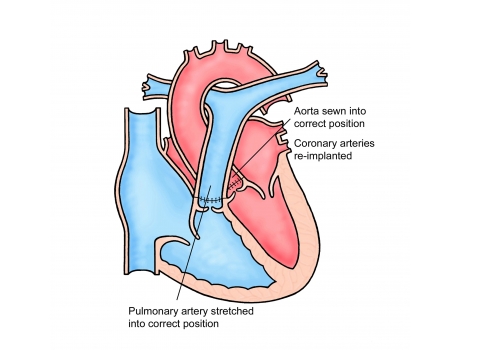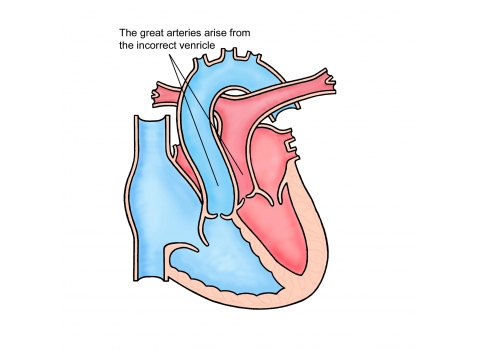Adult
- About
- Meet The Team
- Conditions
- Anticoagulation in Pregnancy
- Aortic Dilatation and Pregnancy
- Aortic Valve Disease
- Aortic Valve Replacement
- Atrial Septal Defect
- Coarctation - Transcatheter stent (keyhole) treatment
- Coarctation of the Aorta
- Congenitally Corrected Transposition of the Great Arteries
- Ebsteins Anomaly
- Eisenmenger’s Syndrome
- Fontan Circulation
- Mitral Valve Repair/Replacement
- Normal Heart
- Patent Foramen Ovale
- Pregnancy information for women with metal heart valves
- Pulmonary Incompetence
- Pulmonary Stenosis
- Pulmonary Valve Replacement - Surgery
- Pulmonary valve replacement - Transcatheter (keyhole) treatment
- Repaired Atrioventricular Septal Defects
- Sub-aortic Stenosis
- Surgical treatment of Atrial Septal Defect
- Tetralogy of Fallot
- Transposition of the Great Arteries - The Atrial Switch (Mustard or Senning) procedure
- Transposition of the Great Arteries – Arterial Switch
- Ventricular Septal Defect
- Ventricular Septal Defect - Transcatheter (keyhole) treatment
- Patient Feedback
- Making the most of your clinic appointment
- Your Appointment in Outpatients
- Easy Read Guide for Out Patients
- Cardiac Catheter
- Transoesophageal Echocardiogram
- MRI
- Surgery & "Top Tips" for coming into hospital
- Lifestyle Advice
- Exercise
- Heart Failure
- End of Life and Palliative Care
- Looking after your oral health
- Dentists Information Section: Dental care in adults at risk of Infective Endocarditis
- Yorkshire Regional Genetic Service
- Support
- Video Diaries
- Second Opinion
- Monitoring Results at Leeds Infirmary
- Professionals
Transposition of the Great Arteries – Arterial Switch
Transposition of the great arteries is a serious heart condition in which the two main arteries arising from the heart are connected to the heart the wrong way round. Babies born with transposition of the great arteries will become blue shortly after birth and without heart surgery, the condition is usually fatal in the first year of life.


Treatment as a child
You have had an operation called an ‘Arterial Switch’, to switch the arteries back to the correct place in the heart. The coronary arteries, which feed blood to the heart muscle, have to be re-connected. Although this operation is often referred to as “corrective” surgery, it never makes the heart completely normal. The switch is usually done within the first three weeks after birth.
Issues relating to adult patients The switch operation has been performed since the early 1990’s. We are optimistic that life should be normal for most patients who have had a switch procedure but you must have on-going, life-long follow up to monitor for potential problems: These include;
• Narrowings near the pulmonary valve
• Leaking of the aortic valve or stretching of the aorta
• Impaired function of the left pumping chamber, if there was some damage during the operation
• Problems relating to the coronary arteries.
General advice for the future
Most patients lead a normal active life after a switch operation, including sports. If there are any particularly strenuous activities to be avoided your cardiologist will tell you.
All patients who have had a switch operation are at risk of infection in the heart (called endocarditis) after surgery. Such infections may be caused by infections of the teeth or gums, therefore it is important to visit the dentist regularly. You no longer require antibiotic cover with dental treatment. Body piercing and tattoos are best avoided as they also carry a small risk of infection which may spread to the heart.
Because there may be a risk of early disease in the coronary arteries, we strongly advise against smoking.
The chances of having a baby born with congenital heart disease are slightly increased from the general population if you have congenital heart disease yourself. The risk is generally quoted as being about 2-4%, compared to 1% for the general population. Your cardiologist can discuss this with you in clinic prior to planning a family. We can offer a specialised scan of your unborn baby’s heart at around 18-20 weeks into pregnancy, which can detect any major abnormality of the heart.
Talk to us before you get pregnant. This is to enable the cardiologist to assess your heart in more detail prior to pregnancy and to arrange further tests if necessary.
Adult Congenital Heart Disease Team.
